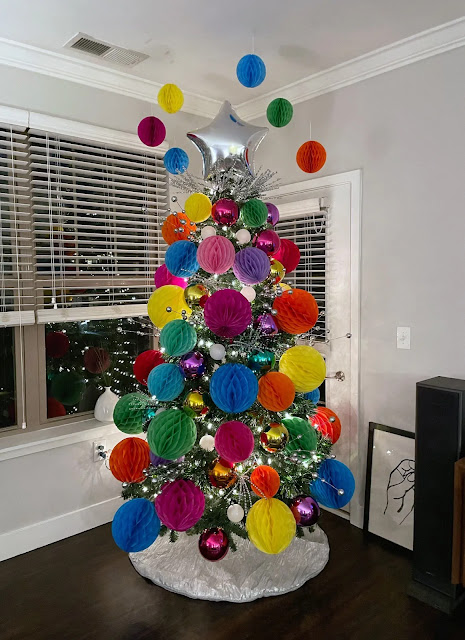My eleventh Advent Policy Brief is a language note; Christmas trees are December trees too.
One holiday season in the late oo's, it came up that I knew at least 3 people who practiced non-Christian faiths but loved Christmas trees. As a staunch atheist, I was happy to brainstorm beyond Christian branding. We decided against holiday tree, decorated tree, and festive tree. Yule tree narrowly became our preferred alternative over festive tree, but neither had the right tone or rhythm.
2 years later, December tree came to me in a spark of unrelated thought. It's a tree...put up for the month of December. It's so obvious.
"December" is descriptive rather than prescriptive, like "Christmas"; "December" is tree-when and "Christmas" is tree-why. Being objective, "December tree" does not attempt to replace the use of "Christmas tree"; it grammatically supercedes it. A Christmas tree is a type or example of December tree, as are solstice trees, birthday trees, and wedding trees.
"Christmas tree" is a fine thing to say if that's what you have, but not everyone is putting a tree up to celebrate Christmas. The assumption/insistence that trees be Christian-branded is an anti-Indigenous and xenophobic microaggression - a subtle marker of non-belonging enforced on a continuum of intentional to oblivious. I repeat: your Christmas tree is still a Christmas tree, but it's also a December tree, and it's not the only tree in the woods.
It would be cool if new residents could participate in the long-standing Canadian tradition of decorating conifers in December without undertones of Christian assimilation.
